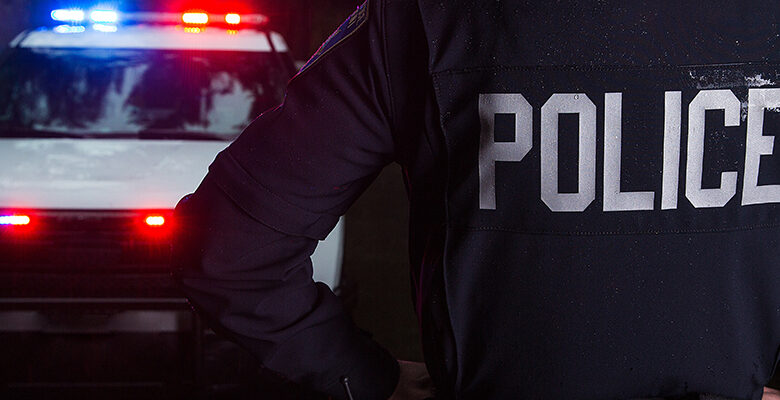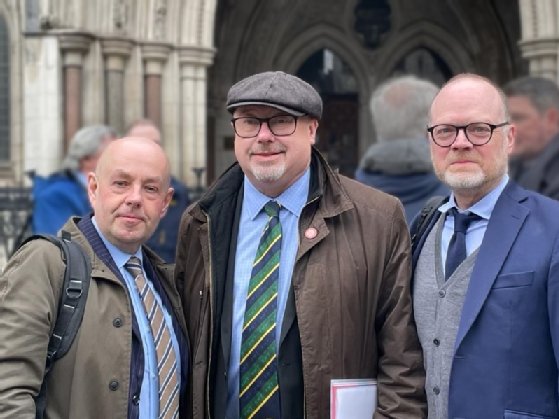Report reveals Northern Ireland police put up to 18 journalists and lawyers under surveillance

The Police Service of Northern Ireland (PSNI) has been involved in up to 18 incidents of surveillance targeting journalists and lawyers, according to a report submitted to the Policing Board in Northern Ireland.
The PSNI’s chief constable, Jon Boutcher, handed the report to the Policing Board last week, six months after it was first requested.
The policing watchdog asked for the report following disclosures that the PSNI had carried out covert surveillance against two journalists who exposed police corruption.
The report, which is not being made public, was criticised by board members at a meeting on 11 April for providing “utterly vague” responses to questions about the PSNI’s use of covert surveillance against lawyers and journalists.
It has now emerged that the report states that there were fewer than 10 incidents relating to journalists and fewer than 10 incidents relating to lawyers, which means there could be up to 18 surveillance incidents involving the two sensitive professions.
Following disclosures, first reported in Irish News, Amnesty International and the Committee on the Administration of Justice (CAJ) have renewed calls to the Policing Board to hold an inquiry into covert surveillance by the PSNI against journalists and lawyers.
Law Society demands answers
The Law Society of Northern Ireland has also written to chief constable Boucher raising concerns that solicitors in Northern Ireland have been subject to surveillance.
David Lavery, chief executive has asked the chief constable in a letter on 18 April to explain the disclosures report including “including the statutory or other authority under which any such surveillance operations were undertaken”.
“I would also ask that you provide me with a copy of that part of the report which refers to surveillance operations conducted against members of the legal profession,” he said.
Lavery said that such was the concern raised by the disclosure that he had sent copies of the letter to the Chair of the Northern Ireland Policing Board, the Police Ombudsman for Northern Ireland, the Investigatory Powers Commissioner, and the Minster of Justice for Northern Ireland.
The Law Society told its members that it has arranged to meet with the Policing Board’s human rights advisor, John Wadham, and is also in contact with the Policing Board “ in view of their role in holding the Chief Constable to account for PSNI operations”.
The Policing Board requested a report from the PSNI about its surveillance of journalists and lawyers after journalists Trevor Birney and Barry McCaffrey asked the Investigatory Powers Tribunal to investigate whether they had been subject to unlawful surveillance.
The Investigatory Powers Tribunal (IPT) heard in February that the two journalists had been subject to police phone surveillance between 2011 and 2018 as part of police attempts to identify their confidential sources.
Disclosures made at the hearing revealed that the police deployed covert surveillance on the two journalists on at least three occasions, in 2011, 2013 and 2018.
Renewed call for inquiry
Patrick Corrigan, Northern Ireland director of Amnesty International UK, said that disclosures that up to 18 lawyers and journalists had been subject to surveillance were “chilling”.
“We already know about three incidents of police surveillance of journalists, but this new information seems to confirm our fears that these incidents are part of a wider pattern of the police abusing their powers on secret surveillance,” he said.
“We want the PSNI to come clean and we continue to call on the Policing Board to hold an inquiry into potentially unlawful use of covert surveillance. It’s time for full transparency, scrutiny and accountability,” he added.
Daniel Holder, director of the Committee on the Administration of Justice, said that police spying on lawyers and journalists was often associated with undemocratic regimes and required compelling justification.
“Revelations of police spying on lawyers raises questions as to whether there has been interference in the administration of justice. The proper functioning of the legal system is reliant on confidentiality of legal communications between lawyers and clients,” he said.

Safeguards for journalists introduced in 2019
The Investigatory Powers Commissioner, Sir Brian Leveson, has written to the Northern Ireland Policing Board, saying since 2019 “significantly enhanced” safeguards have been introduced to protect journalists from having their communications data wrongly accessed.
“The enhanced framework that has been applied since 2019, should mean that the risk of the PSNI inappropriately obtaining journalist’s communications data is low,” he said in a letter to the board obtained by Computer Weekly.
Since 2019, police forces must obtain authorisation from the Office of Communications Data Authorisations (OCDA) to gather communications data, and any application to obtain phone data to identify a journalist’s source also must be approved by an independent Judicial Commissioner.
He said that the Investigatory Powers Commissioners Office (IPCO) now inspects all applications made to obtain surveillance data on journalists during its inspections of police forces.
In his letter, Levenson said that IPCO inspectors had reviewed their inspection reports going back to 2017 and had not “identified any references to concerns” regarding the acquisition of communications data from journalists by the PSNI.
The former judge, however, said IPCO’s ability to search historic information from its predecessor organisation, the Office of the Interception of Communications Commissioner (IOCCO), before 2017 “is not straightforward”.
He said that if there were any issues of concern identified by IOCCO, they would have been referred to in inspection reports which were issued to the PSNI and could be made available to the Policing Board’s human rights advisor, John Wadham, who has security clearance.
“Historical matters are, of course, capable of investigation by the Investigatory Powers Tribunal and it is open to any journalist with such concerns to make a complaint to it,” he wrote.
Unlawful arrests
Durham Police and the PSNI unlawfully arrested Birney and McCaffrey, and seized computer equipment, notebooks and terabytes of data in 2018.
The raids were in response to the journalists’ role in producing a documentary film, No stone unturned, which exposed police failures to investigate the murders of six innocent people in a pub in Loughinisland, County Down, by a paramilitary group.
The PSNI later apologised and paid compensation to the two journalists.
A year later, Birney and McCaffrey asked the Investigatory Powers Tribunal to investigate whether they had been subject to unlawful surveillance by the PSNI, GCHQ, MI5 and MI6.
Evidence presented at the tribunal in February 2023 revealed that the arrests were intended as a “disruption” operation that police hoped would lead the journalists to contact and confirm the identity of a confidential source.
It also revealed that a senior officer at Durham Police, brought in to assist the PSNI, was alleged to have unlawfully attempted to obtain Birney’s work emails from Apple’s iCloud service by wrongly claiming that lives were at risk.
The PSNI also accepted that it had unlawfully accessed McCaffrey’s phone data in 2013 to identify the source of information about police corruption.
The IPT adjourned hearings until the autumn after defence lawyers complained of delays and last minute disclosures of evidence from Durham Police and the PSNI.
PSNI chief constable John Boutcher told the Policing Board in March that there has been “no industrial application” of surveillance powers by the PSNI to monitor non-governmental organisations (NGOs), journalists or lawyers.
He said that the PSNI was not responsible for late disclosure of evidence to the IPT that led to the case being postponed.


